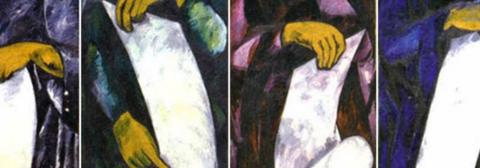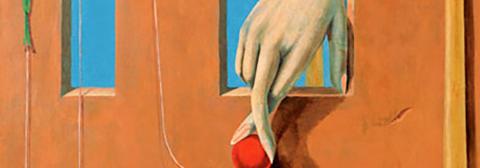Ph.D. Program in Religion and Modernity
Assistant Director of Graduate Studies: Noreen Khawaja
Faculty in Religous Studies: Supriya Gandhi, Frank Griffel, Sonam Kachru, Noreen Khawaja, Hwansoo Kim, Nancy Levene, Kathryn Lofton, Eliyahu Stern, Todne Thomas, Travis Zadeh
Affiliated Faculty: R. Howard Bloch (French, Humanities), Rohit De (History), Carolyn Dean (History), Paul Franks (Philosophy, Jewish Studies), Philip Gorski (Sociology), Bryan Garsten (Political Science, Humanities), Zareena Greewal (American Studies), Jennifer Herdt (Divinity), Hannan Hever (Comparative Literature, Jewish Studies), Willie Jennings (Divinity), Alan Mikhail (History), Samuel Moyn (Law, History), Isaac Nakhimovsky (History, Humanities), Paul North (Germanic Languages and Literatures), Sally Promey (American Studies, Divinity), Joanna Radin (History of Science and History of Medicine), Maurice Samuels (French), Marci Shore (History), Caleb Smith (English, American Studies), David Sorkin (History, Jewish Studies), Kathryn Tanner (Divinity), Linn Tonstad (Divinity), Michael Warner (English, American Studies), Tisa Wenger (Divinity), R. John Williams (English), Jonathan Wyrtzen (Sociology)
These guidelines are intended to provide information concerning the program in Religion and Modernity within the Department of Religious Studies. The aim is to provide norms and expectations to serve as points of reference from which to develop a program of study. It is also to indicate the requirements for the degree and the procedures for meeting them. All students must work with the faculty, the Assistant Director of Graduate Studies (ADGS) for Religion and Modernity, and the Director of Graduate Studies (DGS) for the Department of Religious Studies to define their own particular program. Students will meet with faculty early in their academic program to refine their interests and to design a course of study that will prepare them for the qualifying examinations and subsequent work. The program stresses collaborative mentoring and careful oversight of student development. Adjustments in students’ programs can be made to accommodate newly developing interests and changing course offerings.
Graduate students and faculty in Religion and Modernity will meet regularly over the course of the academic year for an informal colloquium, at which participants might present their own current research or work through a new or classic text together.
Students wishing to do work in Religion and Modernity and another subfield within the department may develop a streamlined program in conversation with the DGS of Religious Studies and the relevant advisory faculty (normally the ADGS) in each subfield. At the formal level such collaborations are likely to involve the redistribution of minimum coursework requirements, merging of exam lists, and engaging faculty from each subfield to serve on examination and dissertation committees.
Contact Information
The Department of Religious Studies
P.O. Box 208287
New Haven, CT 06520-8287
noreen.khawaja@yale.edu



